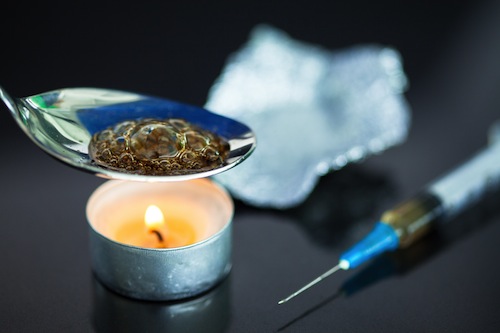 A recent study found yet another way that long-term use of heroin can be harmful: Changes in gene activation that in turn impacted brain function were found in those who had used heroin for an extended period of time, according to HealthDay.
A recent study found yet another way that long-term use of heroin can be harmful: Changes in gene activation that in turn impacted brain function were found in those who had used heroin for an extended period of time, according to HealthDay.
The data used to make these assertions was found by studying the brains of heroin addicts who had passed away. By exploring the striatum, researchers found that huge changes had taken place in how the brain processed DNA. The longer the person had used heroin, the larger the changes. Yasmin Hurd of the Icahn School of Medicine at Mount Sinai in New York City was senior author on the study. She said: “Our study addresses a critical gap in our knowledge about heroin addiction because we cannot often directly study the brains of addicted humans. Our results provide important insights into how human brains change in response to long-term heroin use, and give us the knowledge to help treat this dangerous disease.”
Personality Changes Caused by Heroin Addiction
While actively under the influence of heroin, users often behave and react completely differently to stimuli than they would when sober. Not only does addiction overwhelm the user, making it impossible for them to prioritize anything else in their lives, but it creates long-term changes in the brain that also alter function – changes like the one described above. Studies like these add credence to the fact that drug addiction is a medical disorder; it is not something that someone can overcome simply through willpower. Instead, extensive medical and psychotherapeutic treatment is required. With a comprehensive treatment program, addicts can stop taking heroin and stabilize safely and then learn how to avoid relapse in the future.
Steps to Recovery
Everyone’s experience in addiction is different; therefore, everyone’s experience in recovery should be different as well. In general, however, the following steps can lead the willing person down the path of recovery:
- Detox. There are a number of different ways to successfully navigate opiate detox. A counselor can help your loved one to determine which one will be most effective depending upon their regular daily dose of the drug and other factors.
- Psychotherapeutic treatment. Personal therapy, group therapy, holistic treatments – a unique combination of therapies explored intensively for 30 days to six months or more and then on a more limited basis constitute the most life-changing part of rehab.
- Aftercare. Continuing to engage in recovery through 12-step meetings, personal therapy, and holistic care is the linchpin in recovery and will help your loved one to avoid relapse.
Ready to Get Started?
Call us here at Axis to talk about your loved one’s options in heroin addiction treatment. We are here 24/7 to take your call.


